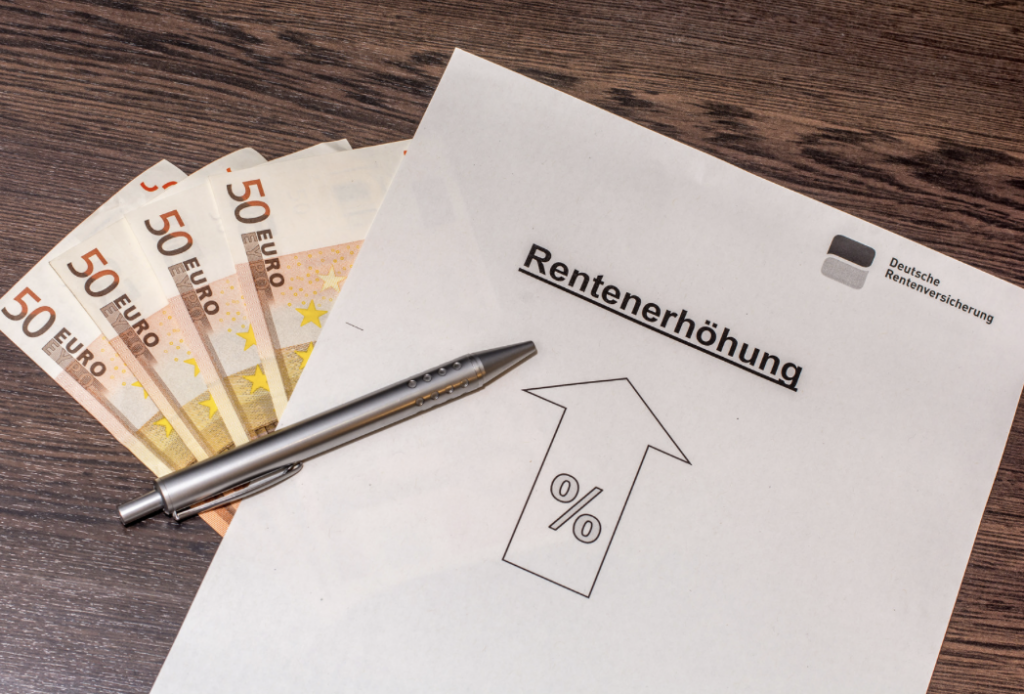Table of Contents
Germany’s pension system is widely recognized for its robustness and reliability, providing financial stability to retirees. However, planning for retirement in a new country can be overwhelming, especially when it comes to understanding the local pension system and what your German pension payout might be.
If you’re an expat in Germany, figuring out how much you’ll receive from the German pension payout can feel like a puzzle. In this article, we will delve into different aspects of the German pension system, helping you understand contributions and potential payouts so that you can confidently plan for your future.
1. Understanding the German pension Payout system
The German pension system, known as the Deutsche Rentenversicherung, is primarily funded through mandatory contributions from employees and employers. It operates on a pay-as-you-go basis, where current workers fund the pensions of current retirees. As you may already know, the main types of pensions within the pension system are the public or state pension (Gesetzliche Rentenversicherung, GRV), company pensions (Betriebliche Altersvorsorge, bAV), and private pensions (Private Altersvorsorge). Understanding these components is crucial to estimating your future German pension payout. You can read further information on pension plans in Germany on this link.


2. Factors influencing pension payouts
In Germany, pensions are commonly disbursed monthly to individuals who have reached the appropriate retirement age. The administration of these payments falls under the purview of the Deutsche Rentenversicherung, the country’s pension insurance agency. Pensions are typically transferred directly into the recipient’s bank account, forming the foundation of your German pension payout.
The following factors determine the amount of pension one receives within the German pension system:
1. Earnings. The higher your earnings, the higher your contributions, and consequently, the higher your pension payout.
2. Contribution years. The number of years you have contributed to the pension system significantly affects your final German pension payout.
3. Pension points. Throughout your career, you accumulate pension points based on your income relative to the national average income. These points are crucial in calculating your pension.
4. Retirement age. The standard retirement age in Germany is gradually increasing from 65 to 67. Luckily, the German pension system requires everyone to chip in with a mandatory pension contribution. This contribution, known as the Gesetzliche Rentenversicherung, amounts to 18.6% of your gross income every month (as of June 2024). Early retirement is possible but results in reduced benefits.
3. Calculating the German state pension
The calculation of the state pension in Germany is based on a formula that includes the number of pension points accumulated, the pension factor (which depends on the type of pension) and the current pension value. Here’s a simplified breakdown:
- Pension points. Each year, you earn points based on your income compared to the average income, which directly impacts your German pension payout.
- Pension factor. Generally, it is 1.0 for a standard old-age pension.
- Current pension value. This is the monthly pension amount for one pension point. As of 2024, the value is approximately €36.02 in Western Germany and €35.52 in Eastern Germany.
Example calculation: If you have accumulated 45 pension points and retire with a standard pension:
- 45 points x €36.02 (West) = €1,620.90 per month.

Moreover, pensions in Germany are subject to income tax. The taxable portion depends on the year of retirement, with a gradual increase in the taxable percentage. For those retiring in 2024, approximately 84% of the pension is taxable.
We highly recommend you to check out the Bundesregierung website (official Federal Government website) to request or receive your annual pension information and stay informed about your personal situation.

4. The Impact of Demographic Changes on the Pension System
Germany, like many other countries, is facing significant demographic changes that will impact its pension system and by extension, your German pension payout. The population is aging, with a growing number of retirees and a shrinking workforce to support them. This shift raises concerns about the sustainability of the pay-as-you-go system in the long term.
- Aging population. As the population ages, there will be more retirees relying on pensions, while the number of working-age individuals contributing to the system decreases. This demographic shift could lead to increased financial pressure on the pension system.
- Longevity. People are living longer, which means they will be drawing pensions for a more extended period, potentially reducing the amount of future German pension payouts.
- Policy responses. To address these challenges, Germany has implemented reforms such as gradually increasing the retirement age and encouraging private pension savings. These measures aim to ensure the long-term sustainability of the pension system despite demographic pressures.
5. Recent Pension Increase: July 2024
On July 1, 2024, German pensions increased by 4.57%, marking the third consecutive year of significant pension growth. This increase, driven by rising wages and strong labor market conditions, will be applied uniformly across all federal states, eliminating the historical disparity between Eastern and Western Germany. The adjustment, which exceeds the projected inflation rate of 2.8% for 2024, reflects the favorable wage agreements that have contributed to this positive development.
Federal Employment Minister Hubertus Heil highlighted the importance of this increase, noting that it symbolizes a key milestone in the equalization of pension rates across the country. Previously, pension rates in former East Germany were lower due to different calculation methods, but legislative changes initiated in 2017 have gradually leveled these rates. The 2024 adjustment brings the pension rates fully in line across all regions, a year earlier than originally planned.
This upcoming increase will benefit approximately 21 million pensioners in Germany, providing additional financial security by enhancing the German pension payout in a time of rising living costs.


6. Special Considerations For Expats
For expats, there are a few important things to remember when it comes to pensions:
- Bilateral agreements. Germany has agreements with many countries to avoid double contributions and to ensure that periods of contribution in different countries can be added together within the pension system.
- Residency. Generally, you must reside in Germany to claim the full pension. However, expats from EU/EEA countries and some other nations can receive their German pension payout abroad. For more detailed information on how these agreements apply specifically to Germany, you can visit the European Commission’s official website here.
- Voluntary contributions. Expats who have not completed enough contribution years may opt to make voluntary contributions to enhance their pension entitlement.
With this information in mind, you can better understand how the German pension system works and what to expect in terms of your pension payout. By familiarizing yourself with the key factors that influence pension payouts, such as earnings, contribution years and pension points, you will be able to navigate the complexities of the system.
If you need personal guidance, feel free to reach out to us. Our pension experts will assist you in helping you make informed decisions and secure a bright future, ensuring your German pension payout meets your retirement needs. Arrange a free consultation now! We also have a live chat feature available on every page. If you have any questions, just click to start a conversation, and our team will be happy to assist you shortly.
What our clients say about our services







How Car Modifications Affect Your Car Insurance in Germany
Germany has a rich automotive culture, and car tuning has become an increasingly popular hobby among enthusiasts. From turbocharged engines to custom paint jobs, personalization

Riester Rente in Germany: Is It a Good Option for Expats?
If you’re an expat living and working in Germany, planning for retirement can be confusing. The Riester Rente in Germany can be a good option to

12 Smart Tips to Lower your Car Insurance Premiums in Germany
Car insurance is a necessary expense for every driver in Germany, but that doesn’t mean you should settle for the first offer or end up

Retirement in Germany for Expats: Understanding Pensions and Insurance
Germany is becoming an increasingly popular destination for retirees from around the world. With its high-quality healthcare system and strong, stable economy, it offers a

Understanding Car Insurance in Germany: A Comprehensive Guide
Whether you’ve just moved to Germany or have been living here for a while, understanding how car insurance works is essential. It’s not only a

Pension Options for Short-Term Expats in Germany: Smart Planning
Many expats working in Germany on temporary assignments overlook pension planning, assuming it’s irrelevant for short-term stays. However, Germany’s pension system offers benefits even for
Secure your future abroad with tailored insurance & pension plans
Get expert advice on the best solutions for expats – personalized to fit your unique needs. Start planning today!
